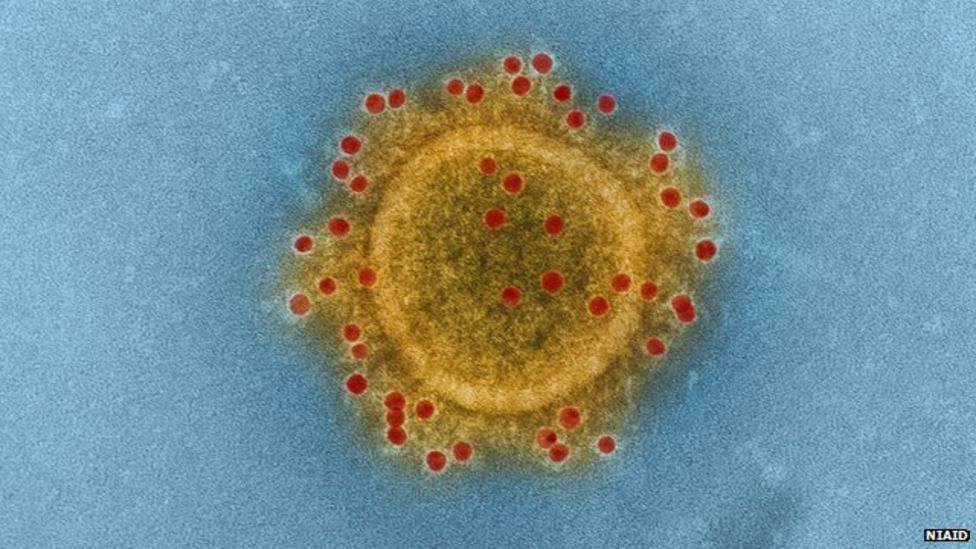Abu Dhabi Reports New MERS-Coronavirus Case, Confirms WHO

Abu Dhabi Reports New MERS-Coronavirus Case, Confirms WHO
The World Health Organization (WHO) has confirmed a case of the potentially fatal Middle East Respiratory Syndrome Coronavirus (MERS-CoV) in Abu Dhabi. According to the WHO, a 28-year-old man tested positive for the virus after being admitted to a hospital in Al Ain city last month.
Health officials have conducted tests on 108 individuals who had contact with the infected man, but as of now, no secondary infections have been reported, as cited by news agency Reuters.
The current condition of the infected man is still pending further updates. For the latest and most accurate information, it is advisable to refer to official updates from the WHO, the Centers for Disease Control and Prevention (CDC), or local health authorities.

Furthermore, there were no indications that the infected man had been in contact with dromedary camels, which are known to be carriers of the MERS-CoV and can spread the disease to humans. Health authorities are closely monitoring the situation to identify the source of the infection and to prevent further transmission. Updates on the investigation and any additional findings will be crucial in understanding the origin and potential risks associated with this MERS-CoV case in Abu Dhabi.
What is MERS-COV?
Middle East Respiratory Syndrome Coronavirus (MERS-CoV) is a viral respiratory illness that was first identified in Saudi Arabia in 2012. It belongs to the same family of viruses as the severe acute respiratory syndrome coronavirus (SARS-CoV) and the more recent coronavirus responsible for COVID-19 (SARS-CoV-2).
MERS-CoV can cause a wide range of symptoms, from mild respiratory problems to severe acute respiratory illness, including pneumonia and organ failure. The virus is primarily transmitted to humans from dromedary camels, which act as intermediate hosts, but it can also spread between humans in close contact, particularly in healthcare settings.

The majority of reported MERS cases have been in the Middle East, with Saudi Arabia being the most affected country. However, cases have also been reported in other regions of the world due to travel-related transmission.
MERS-CoV remains a concern for global health authorities due to its potential to cause severe illness and its ability to spread from animals to humans and between humans. Health organizations like the World Health Organization (WHO) and local health authorities closely monitor and respond to any reported cases to prevent further transmission and mitigate its impact on public health.
Since its detection in 2012, Middle East Respiratory Syndrome Coronavirus (MERS-CoV) has been reported in multiple countries. The 27 countries that have reported MERS cases include:
1. Algeria
2. Austria
3. Bahrain
4. China
5. Egypt
6. France
7. Germany
8. Greece
9. Islamic Republic of Iran
10. Italy
11. Jordan
12. Kuwait
13. Lebanon
14. Malaysia
15. Netherlands
16. Oman
17. Philippines
18. Qatar
19. Republic of Korea
20. Kingdom of Saudi Arabia
21. Thailand
22. Tunisia
23. Turkey
24. United Arab Emirates
25. United Kingdom
26. United States
27. Yemen

The list demonstrates the global reach of the virus and highlights the importance of international cooperation and surveillance to monitor and respond to potential outbreaks. Public health authorities in these countries work together with organizations like the World Health Organization (WHO) to track cases, implement preventive measures, and manage any potential risks to public health. The situation remains a subject of ongoing concern and vigilance to prevent further spread of the virus.
According to the World Health Organization (WHO), a total of 2,605 cases of Middle East Respiratory Syndrome Coronavirus (MERS-CoV) have been reported globally, and out of those cases, there have been 936 associated deaths. This indicates the severity of the virus and highlights the importance of continued monitoring and preventive measures to control its spread and minimize its impact on public health.
MERS is a zoonotic virus capable of transmission between animals and humans. According to information from the World Health Organization (WHO), the primary mode of infection for people in Saudi Arabia has been through direct and unprotected contact with dromedary camels that are carrying the virus.

The symptoms of Middle East Respiratory Syndrome (MERS) typically include fever, coughing, and shortness of breath. In more severe cases, the infection can progress to pneumonia, causing further respiratory complications. It is essential for individuals in regions where MERS cases have been reported to be aware of these symptoms and seek medical attention promptly if they experience any of them, especially if they have been in close contact with dromedary camels or have visited areas with known MERS outbreaks. Early detection and appropriate medical care can significantly improve the outcome for those affected by the virus.




